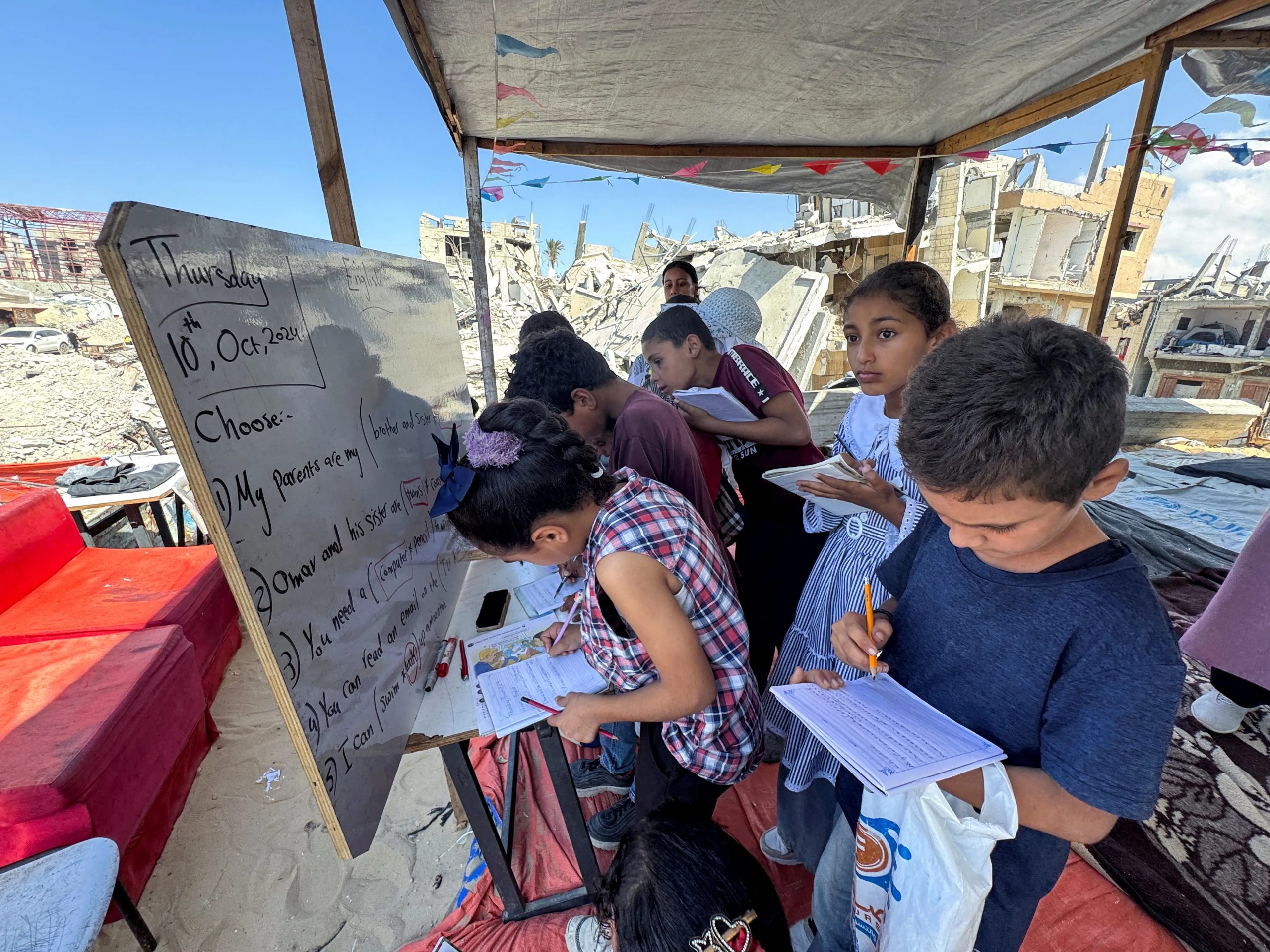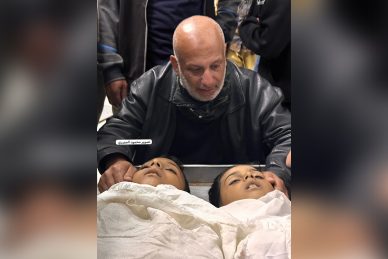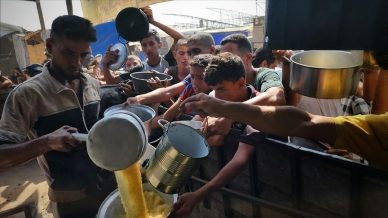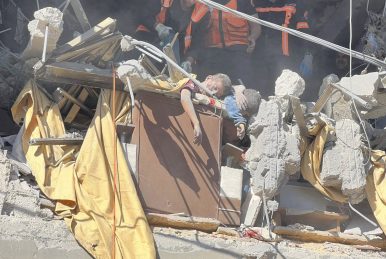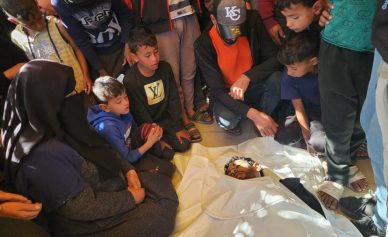GAZA, (PIC)
From a small opening of the crumbling building that was razed to the ground after an American-made bomb was dropped by an Israeli warplane, a child no older than two appears, with perhaps only some features of his face visible. He looks at those around him—family members and civil defense teams. He tries to make a sound to express what he feels, but his young age makes it difficult for him to convey his emotions to others.
On television screens, Israeli voices emerge, like that of the Finance Minister Bezalel Smotrich and former Army Minister Yoav Gallant, claiming Palestinian children are not human and that they love death and hate life, thus they have no rights as humans.
The scene of the child trapped under the rubble does not end; his innocent face refuses to smile in this miserable state—perhaps because he does not comprehend his situation. Yet, by extending his small hand from that tiny opening, he managed to communicate to the world what he could not say with his tongue: I am a child who wants life… I love it… I wish to live it with all its joys of play and the thrill of mischief, just like all the children of the world.
Living the history of their country
Dr. Wafa Abu Mousa, a psychological consultant with a PhD in psychological support for children, says that children around the world learn history from books in schools, studying a curriculum on paper. However, the children of Palestine live their country’s history moment by moment, experiencing all forms of aggression against them and the nature of the life they lead.
Wafa explains in an interview with the Al Jazeera network that the ongoing siege and repeated crises create children who carry responsibility and have a clear goal, supporting one another to become strong. Yet, they carry in their hearts a deep wound for their homeland. She adds that the reality of war adds to the children of the Gaza Strip a dimension unknown to children in other parts of the world, making them aware that when Palestine triumphs, it will signal the end of their long struggle.
“We experience panic and fear due to the bombardment; these are natural feelings. We are not made of iron; we feel pain like others. However, we have the strength to confront and endure suffering, along with empathy and social support for one another. Most importantly, we forget all our personal problems in times of aggression and war, uniting our ranks and our goal against the enemy.”
A life that provokes the enemy
The scenes of children in the Gaza Strip in various aspects of their lives incite hatred and a desire within their enemy to eliminate this generation, which possesses a vibrant spirit for life that the occupation seeks to extinguish with all its might.
The eagerness of these children to embrace life and experience its beauty represents a ticking time bomb for the occupation, which sees it as inevitably exploding in the face of its arrogance. Those who love life resist humiliation and create glory, which contradicts the occupation’s plan built on crushing Palestinians from generation to generation.
No matter how innocent a child appears, simply being Palestinian is enough for them to be deemed deserving of death and execution in the eyes of the leaders and politicians of the occupation. This was recently stated by Israeli diplomat David Roet, the Israeli ambassador to Austria, who called for the “execution of Palestinian children” because, in his view, they are non-civilians.
Shaping the future
Consultant Wafa Abu Mousa states, “We see children of martyrs from the 1987 intifada who have grown into responsible young adults for their families. The children of Palestine create life from pain, and despite everything they go through, they want to grow up to help neighbors, family, and all who suffer. Thus, they turn to education; everyone in Palestine values education as the weapon to fight and excel over the enemy.”
Two school years have passed during the brutal war against the Gaza Strip and its children, but these children have not been like others, regularly attending their classes; they are either martyrs, injured, or displaced, which causes them to lament what they have missed in terms of learning and academic consistency. For them, education represents a future they wish to achieve, contrary to what war criminals promote, claiming they love nothing but death.
Experiences that foster awareness
In the Gaza Strip, children astonish the world with their way of thinking, beliefs, and eloquence, as if they are seeing strong, wise men, yet they are just children.
Children in the devastated Gaza Strip experience a life entirely different from other children worldwide; they grow up quickly due to their awareness and absorption of the reality around them, and because of the experiences they endure, especially the painful experiences of war, which make them resilient, courageous, and more aware of responsibility.
We sympathize with them and feel pain when we see them crying from loss or injury. Yet, they live life despite all the difficulties and circumstances the occupation has placed in their path, and they have never surrendered.
From pain, they create hope; from adversity, they strive to summon moments of joy. Even the rubble of their homes has turned into a playground where they slide on its roofs, as if mocking their killers who sought to turn their lives into hell, declaring, “We will live despite you, and in the way we want, not the way you intended for us.”

